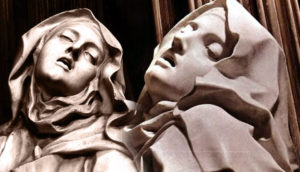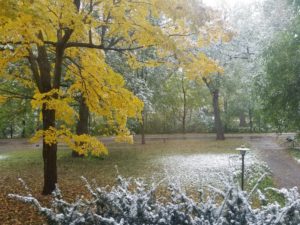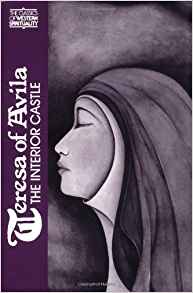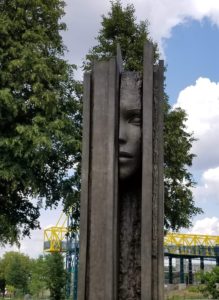Today is the feast day of Teresa of Avila, the extraordinary writer, mystic and nun of 16th century Spain. Her book The Interior Castle continues to influence my spiritual thinking and I refer to it often when clients see me for spiritual counseling.
Teresa describes a castle with seven rooms leading from the exterior to the interior as a metaphor for the soul and our movement towards the center where Source resides.
I find that Source can refer to a universal guiding force (God) and/or our own sacred essence (who we can be when fully living aligned with our values and gifts)
We move through the rooms by evolving from active prayer (conversation with Source / our sacred essence) to passive prayer (in the flow or in communion with Source /our sacred essence)
Teresa did not specify how to pray, other than to stress that we begin by talking with Source, not reciting learned prayers – but speaking to Love. Her lack of detail enables us to create our own methods. We can personify Source as a person – Father/ Mother or Jesus, for example – or we can imagine offering all of our thoughts, hopes and fears to the Universe. Seeing a beautiful tree, we can offer gratitude for such beauty. This conversation can progress until eventually we are in a constant state of experiencing Love. Teresa wrote, “Pray as you can, for prayer doesn’t consist of thinking a great deal, but of loving a great deal.”
The sequential nature of the castle’s rooms is important, for Teresa said, “If the foundation is on sand, the whole building will fall to the ground.” Those who try to rush ahead or skip steps in order to more quickly experience the ecstasy of communion with Source are deluding themselves with selfish desires and headed down a dark path. (I think about Teresa when I hear about motivational / spiritual events where people are enclosed together for long hours with lots of yelling or intense evoking of hidden shames so as to orchestrate quick, sudden “breakthroughs.”)
Self-knowledge is the first virtue of our journey as spiritual seekers. This is the awareness of the beauty of our own soul and of our capacity for union with Source. Experiencing this union creates a level of ecstasy so profound, Teresa believed that if we all knew this, we would all seek to reach it.

Humility follows self-knowledge. As our conversation with Source progresses, our deficiency in loving-kindness becomes apparent. In fact, to think that we are sufficiently spiritually evolved is fatal to our spiritual life. Teresa wrote “While we are on this earth nothing is more important to us than humility.” Aligning our will with our sacred essence is a life long process that humans can never perfect, but that we can continually move towards. When we feel prideful or smug in our goodness, we are overlooking opportunities to be more genuine. Worse, we are more likely to judge the weaknesses of others. Teresa specifically warns of how a lack of humility leads us to judge and gossip about those around us. Anytime we start to think we are sufficiently aligned with our values it is time to be more honest with ourselves.
Likewise, forgiving ourselves for our shortcomings is also important and leads towards greater acceptance and forgiveness of the imperfections of others. It is a balancing act – recognizing we always have room for growth while accepting who we are in the moment. According to Teresa, having a spiritual counselor is an important part of this process. (Need one? Email me)
This is just a hint of the many wise gems of Teresa’s writing. If you read her books, it’s important to know that she wrote during The Inquisition when many thousands of women were tortured and burned at the stake for professing spiritual knowledge. This is why Teresa’s books are peppered with apologies for being a stupid woman and pleas to forgive her if she is wrong. This strategy worked – although briefly imprisoned she was spared persecution. Centuries after her death she was made a Doctor of the Roman Catholic Church – meaning in part that her writings are considered to have had great influence on the spirituality of Catholicism.
 There is good reason to deeply distrust the institution of the Catholic Church – that is obvious to many. There are also spiritual riches buried throughout its long history –Teresa of Avila’s writings among them – that I encourage you to discover.
There is good reason to deeply distrust the institution of the Catholic Church – that is obvious to many. There are also spiritual riches buried throughout its long history –Teresa of Avila’s writings among them – that I encourage you to discover.

